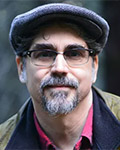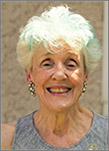Review | SHIPS IN THE DESERT by Jeff Fearnside (Kazakhstan)
Ships In The Desert
by Jeff Fearnside (Kazakhstan 2002–04)
Santa Fe Writer’s Project
136 pages
August, 2022
$14.95 (paperback), $8.99 (Kindle)
Reviewed by Eugénie de Rosier (Philippines 2006-08)
• • •
Out of the massive spread of Central Asia — from the Caspian Sea moving east to northwest China — is the region’s “stan” countries: Afghanistan, Kazakhstan, Kyrgyzstan, Tajikistan, Turkmenistan, Uzbekistan, and the Uyghur (WEE-gur) autonomous region of Xinjiang, China. Historically, the area was known as “Land of the Turks” or Turkestan. It’s unrelated to Turkey.

Jeff Fearnside
Jeff Fearnside’s slim volume of essays assesses his four years as guest educator and fellowship program manager for post-graduate study abroad. Most of his living happened on the Great Silk Road mainly in Kazakhstan. He addresses a stirring call to action about our responsibility to save our precious water resource globally after the Aral Sea disaster.
He outpours his view of Kazakh people, their culture, history, politics, Suni faith, while he explores the role of missionary, and the Asian and Western understanding of the word. He brings Kazakhstan — little understood in America — to life, with its successes and failures. We can recognize ourselves in these complexities and feel empathy, because we struggle with the same complications.
During his in-country Peace Corps training, the writer studied Russian and lived with a Kazakh host family in Kainazar, a village. The family were Uyghur and Muslim (Moo-slim), and included him in the town’s cultural and civic events. They had electricity and owned a television. Telephones in homes were uncommon in the early 2000s, and people walked a half-mile for well water. For hot water, it was boiled. For outdoor showers, a barrel was left in the sun. Fearnside gives us a vivid picture of how his hosts lived their lives.
As a volunteer, he left for his teaching job in Shymkent, with its half-million people (2004) and was welcomed at a small university with its eager students. The city charmed him with its tree-shaded streets that spread out among low-rise buildings and inviting cafes. His most important work was to encourage his students to apply for fellowships toward post-graduate study abroad.
After Peace Corps service, Fearnside took a job with a fellowship program in Kazakhstan and Kyrgyzstan, administering funding aimed at people like his former students and giving a chance to study abroad, for well-qualified boys, and girls, was a worthy exchange for two countries to extend their global understanding.
In measured terms, Fearnside aligned the broad unknowing of Central Asia among Americans in large part due to our print and digital media, which often only portray Islam and Muslims in a shadowed light. This influences the American reader and gives a skewed grasp of Turkestan peoples. Fearnside’s assessment is fair about our failings.
The author traveled on the Great Silk Road, which brought historic perspective to what Central Asia gave to the world between second century B.C. and the 16th century, and influences that region today. Stretching from western Asia Minor to the eastern Chinese and Indian states, camel caravans became the safe way to trade. What riches the branches of this route brought ensured Central Asia’s affluence in culture, finance, and religious diversity.
Environmental debasement was a Fearnside theme
The Aral Sea used to sit between Kazakhstan and Uzbekistan, and for centuries was a vast freshwater lake. Its fish diversity provided a livelihood and food for the region. From mid-18th century to 1960, it was a vital gem.
Kazakhstan, Kyrgyzstan, Tajikistan, Turkmenistan, Uzbekistan were previously khanates, territory ruled by a khan, prior to Stalin’s gerrymandering borders in Central Asia in the 1920s.
By 1922, the USSR was a reality. These five countries were not independent nations until the 1991 Soviet Union’s breakup.
In the 1950s, the Soviets devised an ill-planned scheme to build a new industry — from the little cotton Kazakhstan produced — and the seeds for a manmade disaster were sown.
Cotton demands quantities of water, intense human labor, transport to move and sell. Other crops were stripped, and desert was dug up and irrigated to grow the cotton. Chemicals were sprayed, and forced labor was dictated by Soviets to the Kazakhs, who were largely unpaid and exposed to chemicals.
It took only 40 years for the Aral Sea to be destroyed — volume diminished, salt content increased, chemical runoff dried the sea bed, its poisons spread. Cancers and infant mortality followed.
In 2003, Fearnside hopped on a train and then a jeep to go look at the Aral Sea. The miles of desert he saw to the horizon were once the sea. He writes an urgent call to the world that we must stop wasting this precious resource.
He isn’t shy about discussing that America and other countries, have made the same mistakes. He cited our Ogallala Aquifer, that flows under eight Great Plains states, and is the main water resource for 200,000 square miles of land. Its loss would be more devastating to the world than the Aral Sea, because of its breadth. We, all of us, are “over-pumping water for irrigation.”
Fearnside writes, “Like the Soviets, we justify our environmentally destruction decisions in the name of economics. But when faced with the price of cleanup, which often runs into hundreds of millions of dollars, it becomes clear that even economically our decisions are unsound.”
• • •

Eugénie de Rosier
Eugénie de Rosier’s writing has appeared in Antioch Review, Huffington Post, The Mantelpiece (Iceland), Ariel Chart International, and Hurricane Alice. Her commentaries have appeared in the Chicago Tribune, Minneapolis Star, and elsewhere. She is pursuing a publisher for an essay collection, and a short-story manuscript.

No comments yet.
Add your comment